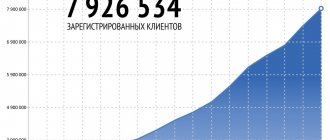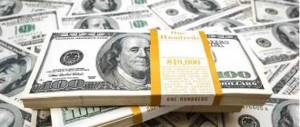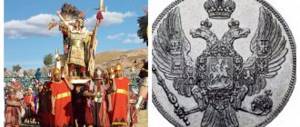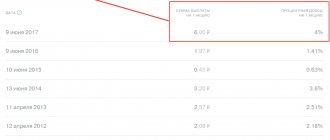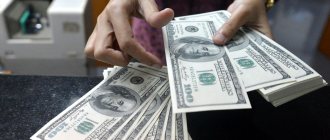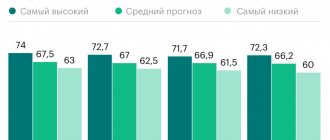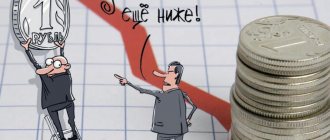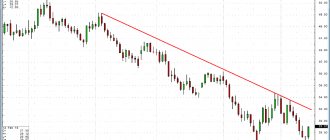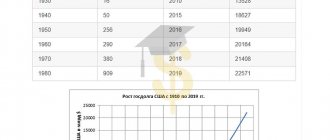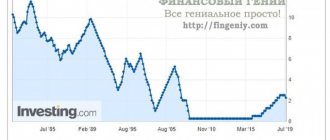Why are prices rising?
The surge in inflation is associated with a number of factors: the global economic crisis, the coronavirus pandemic, which is causing ruin for some entrepreneurs, a decrease in effective demand, the failure of global supply chains, lockdowns, the closure of shopping centers...
As for our internal factors provoking price increases, this is the budget deficit, which will have to be replenished through the introduction of indirect and direct taxes, which will lead to an increase in prices, for example, for alcohol and cigarettes. There are also environmental fees and labeling requirements for dairy products and water.
This year consumers will also be forced to pay an increased environmental fee, the volume of which is estimated at more than 130 billion rubles. The introduction of new rules for truck drivers increases transport costs for transporting goods by up to 5%. As you know, the cost of delivery is included in the price of any product, and this is paid by the consumer.
Side effect of Indian covid. Will medicines become more expensive in Russia? More details
The rise in prices for motor fuel due to rising oil prices on world markets will also contribute. Despite the damper mechanism, growth by 3-6% is expected by the end of the year. This means an increase in prices for almost all goods, since logistics is included in the cost of any product.
The factor of ruble devaluation contributes at least 30% to the formation of inflation rates. In practice, wholesale purchasing firms and retail chains raise prices not by the percentage of ruble devaluation, but higher, laying down insurance for themselves in the event of a further depreciation of the ruble.
Business support
The business support measures taken in Russia amid the coronavirus pandemic have generally worked, Putin said.
He recalled that this year, during the epidemic, the Russian authorities adopted “a whole set of measures to support business, and were based on the basic criterion - to support, first of all, those companies and entrepreneurs who are ready to bear responsibility for their workforce and for maintaining employment.”
“And I must say frankly, this approach has largely made it possible to minimize the negative impact of forced restrictive measures on the labor market,” Putin said. “I repeat, in general these measures worked.”
He added that the government made the said decision “correctly, in a timely manner, and this played a role.”
Technique
Prices for household appliances and electronics are especially sensitive to the weakening of the ruble. Depending on the category, their prices have already increased by at least 5% since the beginning of the year.
In the summer we will see new prices for household appliances, electronics, computers, laptops. The price increase may be up to 20%.
Primary or secondary: which real estate will rise in price faster? More details
In addition to the devaluation of the national currency, the rise in prices for these goods is associated with the increase in the cost of international sea container transportation caused by the pandemic and the trade war between China and the United States.
Despite the ongoing policy of import substitution, the share of foreign components used in various industries is still quite large, and this applies not only to industry, but also to agriculture. Such a traditional Russian product as potatoes is also becoming more expensive, although it is produced in Russia, but seeds and protective equipment are purchased abroad for foreign currency.
Prices, don't go up! Will inflation slow down in Russia? More details
Inflation
Inflation in Russia in annual terms increased to 4.4%, exceeding the target values of the Bank of Russia, the president said.
“Recently, inflation has risen above the Central Bank’s target,” the head of state noted. “By the end of November, in annual terms it’s 4.4% now, and the target was somewhere around 4%.”
According to Putin, “a number of objective factors had an impact here, including difficulties in the operation of enterprises during the epidemic and the weakening of the ruble.” “You and I discussed this issue at a meeting in October and then agreed that the government would carefully analyze this problem,” he recalled.
At the same time, the president emphasized that all measures taken must be carefully studied. It is necessary to take into account their impact both on the current work of the business and on its development plans, he explained.
“And, of course, the most important thing is the interests and well-being of our citizens,” added the head of state. “Therefore, all decisions must be balanced and, I want to emphasize this again, timely.”
Products
By the way, about potatoes and other food. An increase in prices for sunflower oil, sugar and dairy products has already occurred, despite government regulation measures. Manufacturers and retail chains are either holding back the product or do not want to reduce its price, trying to compensate for their losses during the 2021 lockdown.
Prices for bread and bakery products are expected to rise by up to 20%, despite the projected high grain harvest, as well as animal feed in the range of 15-20%, which, accordingly, will cause an increase in meat and products made from it.
Mandatory labeling of dairy products will come into force in Russia this summer. It will lead to an increase in the cost of goods by at least 6%. And taking into account the purchase by manufacturers of special equipment and codes for marking, prices may increase by 25-30%.
Products such as tea, coffee, cocoa may rise in price by 15% due to the depreciation of the ruble. The shortage of tea in India is associated with the rampant coronavirus in this country.
Time to come down to earth. Who is to blame for rising food prices Read more
Unemployment
The rate of decline in unemployment in the Russian Federation does not yet allow us to talk about a radical change in the situation on the labor market, the president said.
High unemployment, according to him, is one of the key challenges at present, and not only for Russia, but for the whole world. The President noted that after peak values in August, unemployment in the country began to decline and is now about 6.3%.
“This is better than in many countries, including more economically developed countries. At the same time, the decline in unemployment in our country is still slow, and this pace is not yet sufficient to talk about a radical change in the situation,” Putin said. — This is better than, say, in the USA, where unemployment is already over 8%. <…> And in the eurozone it’s even higher.”
The head of state added that due to the complications of the epidemiological situation in November, risks of deterioration in indicators in the labor market again emerged. “The government has been tasked with restoring the employment level to the 2021 level by the end of next year. I am sure that this is a realistic goal,” he said.
Putin invited the meeting participants to discuss additional measures and solutions to stabilize the situation in this area, to talk about “what mechanisms and tools need to be used here.”
Travel and summer goods
We should expect an increase in prices for railway and air transport tariffs, as well as the cost of hotel services, catering establishments and real estate at Russian resorts in the summer of 2021.
With the beginning of the season, demand and prices will increase (according to experts - by 50-70%) for traditionally summer goods - bicycles, fans, air conditioners, etc. Also in the summer, goods for country repairs traditionally become more expensive, taking into account rising prices for metal products and wood and other building materials - by a significant amount.
The consumer was punished. What will price “maneuvers” lead to? More details
Summing up, I must admit that the summer of 2021 will hit Russians’ wallets hard. According to experts, food prices in Russia are rising seven times faster than in Europe. By December 2021, food inflation may reach 10-15%.
What will become more expensive in the New Year 2021: alcohol, electronics, food, housing and communal services
Housing and communal services will empty the pockets of residents
Next year, the state plans to index housing and communal services tariffs. The most unpleasant thing that ordinary consumers may face is that utility bills in 2021 may well increase by more than 4%—annual inflation. There is only one motive here - to get more from citizens in order to minimize the “lost” income of management companies. Otherwise, the industry will supposedly simply collapse.
Natalya Chernysheva, housing and communal services specialist, director of the Organization of People's Control:
— Tariffs for housing and communal services are usually increased by about 4–6% from July 1. But starting in 2021, a new misfortune awaits people - as of January 1, the moratorium on fines and shutdowns of housing and communal services for non-payment will end. If the moratorium is lifted, a large number of Russian families will find themselves in a very difficult situation due to debt. And possible fines are not the biggest evil (with average monthly bills of about 5 thousand rubles, they will amount to about 100 rubles over several months). Turning off lights, heating, and water during the cold winter season is much worse.
As for the increase in tariffs from July 1, 2021, it usually averages 4–6%, depending on the region. In 2021, tariff growth in the regions ranged from 2.5% to 6.5% compared to 2019. Most likely, resource supply companies will lobby for a larger percentage increase in 2021 to try to cover their losses from shortfalls in 2021.
Sergey Minko, General Director of PJSC “City Innovative Technologies”:
- In 2021, gas tariffs will be indexed by an average of 3% - from January next year. Electricity tariffs will be indexed by 4% in July, and tariffs for garbage collection will also increase from July 1, 2021 (by 4%). The cost of heat supply, water supply and sanitation services will increase by 4%. These are average figures for Russia; regions have the right to set their own tariffs, the growth of which, apparently, will be in the range of 3.4–6.4%. In accordance with the law, the increase in tariffs cannot exceed the level of inflation, which, according to the Ministry of Economic Development, will be approximately 4–5%. The reasons for the increase in tariffs (which are indexed annually) are the increase in the cost of expenses of resource supply organizations, the deterioration of the housing and communal services infrastructure, and the need to improve the quality of services in the field of housing and communal services.
The habit of smoking will cost you a pretty penny
The State Duma increased excise taxes on cigarettes by 20% from 2021 instead of the planned 4%. All for the sake of the fight against smoking (and to cover reduced budget expenses due to coronavirus). As a result of the increase in excise tax, the cost of cigarettes will increase by an average of 20 rubles. If now a pack costs on average 120 rubles, then next year its price will rise to 140 rubles. Experts believe that a significant increase in excise duty could immediately result in an increase in the volume of counterfeit products on the market, which, as a rule, are imported from EurAsEC countries. As a result, prices for consumers will rise, the share of “gray” tobacco products will increase by 10–20%, and the budget will earn nothing.
Anna Bodrova, senior analyst at IAC Alpari:
— Any sharp tax increase (and for tobacco products this is a constant and large-scale process) will be stressful for the industry. An increase in the excise tax by 20%, in addition to everything that happened to the prices of tobacco and cigarettes this year, will provoke not only an increase in counterfeit goods, but will also most likely reduce the quality of legal products, because law-abiding manufacturers will not be able to remain in the profitability zone at such a rate. background. The share of “gray” tobacco products may increase by 10–20%, and the budget will earn nothing. But the consumer will immediately feel the difference: either in the price of cigarettes (if he buys “white” products), or in quality (if he encounters counterfeit goods).
Vodka will become a delicacy
Starting next year, minimum retail prices for vodka, cognac and champagne will increase significantly - from 3 to 6%. Along with the minimum wage, the excise tax will also rise from 544 to 566 rubles per liter of anhydrous ethyl alcohol. There are several tasks here - the fight against drunkenness among the population, the saturation of the “leaky” budget, as well as the expulsion of illegal products from the domestic market. But if they may drink less, since alcohol will become unaffordable for many, then officials are unlikely to be able to rid store shelves of “scorched” goods.
Marina Strogaya, executive director of the Investment and Agrarian Fund:
— From January 1, 2021, excise taxes on strong alcohol, sparkling wine and champagne will be increased, as a result of which alcohol prices will rise. The price of vodka will increase by 5.7% (from 230 to 243 rubles per 0.5 l), for cognac - by 3% (from 433 to 446 rubles per 0.5 l). For brandy and other alcohol produced from wine, grape, fruit, cognac, Calvados and whiskey distillates, the minimum retail price will increase by 2.8% per 0.5 liter (up to 324 rubles). The minimum retail price for sparkling wine and champagne will increase by 3% from 2021 (to 169 rubles per 0.75 liter).
Petr Shchelishch, Chairman of the Russian Consumer Union:
— The main driver of the growth in the cost of vodka is the excise tax, which is constantly increasing. On the one hand, in this way the state replenishes the treasury, and on the other hand, it fights drunkenness. True, for now such measures help the budget much more. It is impossible to significantly reduce alcohol consumption in the country. Lack of funds forces hobbyists to go into the illegal market. And it’s not just about the marginalized. The pandemic has seriously affected the incomes of the entire population of the country. By the New Year, strong alcohol on average will rise in price by as much as the minimum retail price will rise. The cost will increase by about 6%. The alcohol market is very competitive, and no one wants to raise the price tag beyond measure, since the risk of losing customers will immediately skyrocket.
You will have to fork out more for imported equipment
Household appliances, electronics, gadgets, clothing, shoes, accessories, cosmetics, perfumes (imported) have already risen in price by 15–20% on average this year due to the devaluation of the ruble and a reduction in inventory at old prices. Further price increases will also depend on the dynamics of the exchange rate of the domestic currency against the dollar and euro.
Petr Pushkarev, chief analyst at TeleTrade:
— By the New Year holidays, for the most part, household appliances, especially imported electronics, will become more expensive. Plasma panels of the new generation, smartphones of the latest models, for which there is maximum demand, are not taken from warehouses, but are purchased at prices in dollars, euros, and yuan. And here it is worth considering that not only the ruble has fallen in relation to all these “currency standards”, but in addition, the Chinese currency has risen in price very much in 2021 on world markets: in the spring the dollar cost more than 7 yuan, and now it is 6.5. Therefore, the prices for brand new gadgets will not spare us. And when new items are clearly becoming more expensive, it is unlikely that sellers will begin to write down the price tags on stale models: in contrast, buyers will tear them off anyway. The only option to save money on imported equipment is to wait for New Year's discounts on stocks that have not been sold in warehouses during the year, but after the holidays you will have to pay a much higher price for imported equipment.
Rising food prices will make you nervous
Fish, caviar and other delicacies are rising in price, and it is difficult to predict how much they may rise in price by January. On the one hand, the population has tight budgets. According to a study by Otkritie Bank, a quarter of Russians plan to reduce expenses on the New Year's table. But, on the other hand, experts do not rule out that sellers may raise prices by 30–40% in the hope that richer people who are still able to fork out the cash will buy caviar and other delicacies.
But even if we do not take into account the traditional components of the holiday feast, Russians will still have to spend heavily on everyday products. Pasta products will increase in price, since their price includes the highest share of food wheat, market prices for which have also reached multi-year highs. Sugar is also becoming more expensive due to unfavorable harvest conditions and unscrupulous actions of some large sellers, as recently reported by the Federal Antimonopoly Service.
Marina Strogaya, executive director of the Investment and Agrarian Fund:
— For all categories of products, the main factor in cost growth will be the fluctuation of the ruble exchange rate against the dollar and euro, so in 2021 the price increase will continue. Milk and dairy products rose in price by an average of 5–10% in 2020 due to the devaluation of the ruble, rising feed costs, and increased producer costs.
Pasta and sugar also increased in price in 2021 for various reasons: an increase in exchange prices for grains and sugar on international markets, an increase in producer costs due to the devaluation of the ruble. In addition, the price of sugar was affected by the current year's low harvest. On average, the cost of pasta increased by 15%, sugar by 35%. Fish and red caviar may rise in price by 50–70% by the New Year due to lower catch volumes than last year.
Black Mark
There are a number of products whose rise in price is not related to the situation on world trading floors and the fall of the “wooden” market. For example, milk, dairy products, ice cream and drinking water will rise in price in 2021 due to mandatory labeling.
Currently, the country is conducting an experiment on labeling dairy products. In April this year, the government extended it until December 31, 2021. The main deadline for introducing labeling is January 20, 2021. In other words, from the first month of the new year, a transition period will begin, which market players must spend on completing preparations for mandatory labeling and comprehensively completing testing of all processes. Note that labeling one unit of goods will cost approximately 50 kopecks. In the price of a carton of milk or yogurt, this seemingly trifle can become significant for the consumer, especially the poor.
As for drinking water, from April 1, 2021 to March 1, 2021, an experiment on its labeling is taking place in Russia. This is done to combat counterfeiting. In the drinking and mineral water market, illegal turnover is 30%, according to the Federal Tax Service.
Marina Strogaya, executive director of the Investment and Agrarian Fund:
— According to average estimates, the industry will spend from 3 to 5 billion rubles annually on labeling drinking water. Despite the fact that against the backdrop of the pandemic, turnover in the sector fell very significantly. Especially during the self-isolation regime in the spring, the turnover in sales of bottled water for offices decreased by 60%, the overall drop in the market in 2021 could reach 30%. The average load on production capacity has fallen to the level of 2001, and production volume is below the pre-crisis level of 2008.
■ ■ ■
Everything will continue to rise in price next year, leading Forex Optimum analyst Ivan Kapustyansky tells MK. This is explained by rising inflation in the country. At the moment it is about 4%. Official food inflation is 4.9%. However, more accurate dynamics, according to the expert, are reflected by the inflation expectations of Russians, which rose to 9.6%. Moreover, inflation will continue to rise in 2021, although the Central Bank of the Russian Federation expects the peak of inflation to pass just next year.
“Inflation is explained, on the one hand, by the weakening of the ruble, on the other hand, by the printing of money by the Bank of Russia, which finances the budget deficit using the OFZ as collateral. On the horizon for at least next year, there is no reason for the budget to cease to be in deficit. Oil is unlikely to grow significantly due to the impact of the coronavirus, and yet oil and gas revenues account for about 30% of the Russian federal budget. There is also a national plan to save the Russian economy until the end of 2021, which requires a lot of money. At the same time, based on the experience of this year, we can say that the government will not spend the “little money”—the National Welfare Fund—on this. Accordingly, the authorities will increase debt, and the population will pay for such a policy with a widespread rise in prices for goods and services,” the expert concluded.
